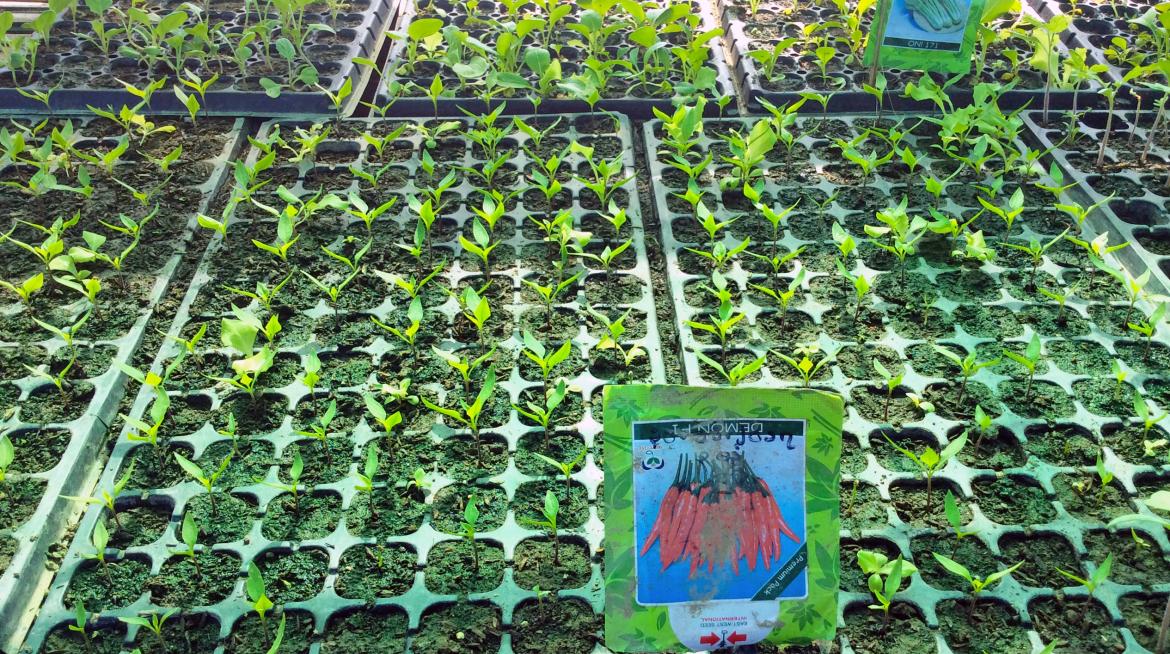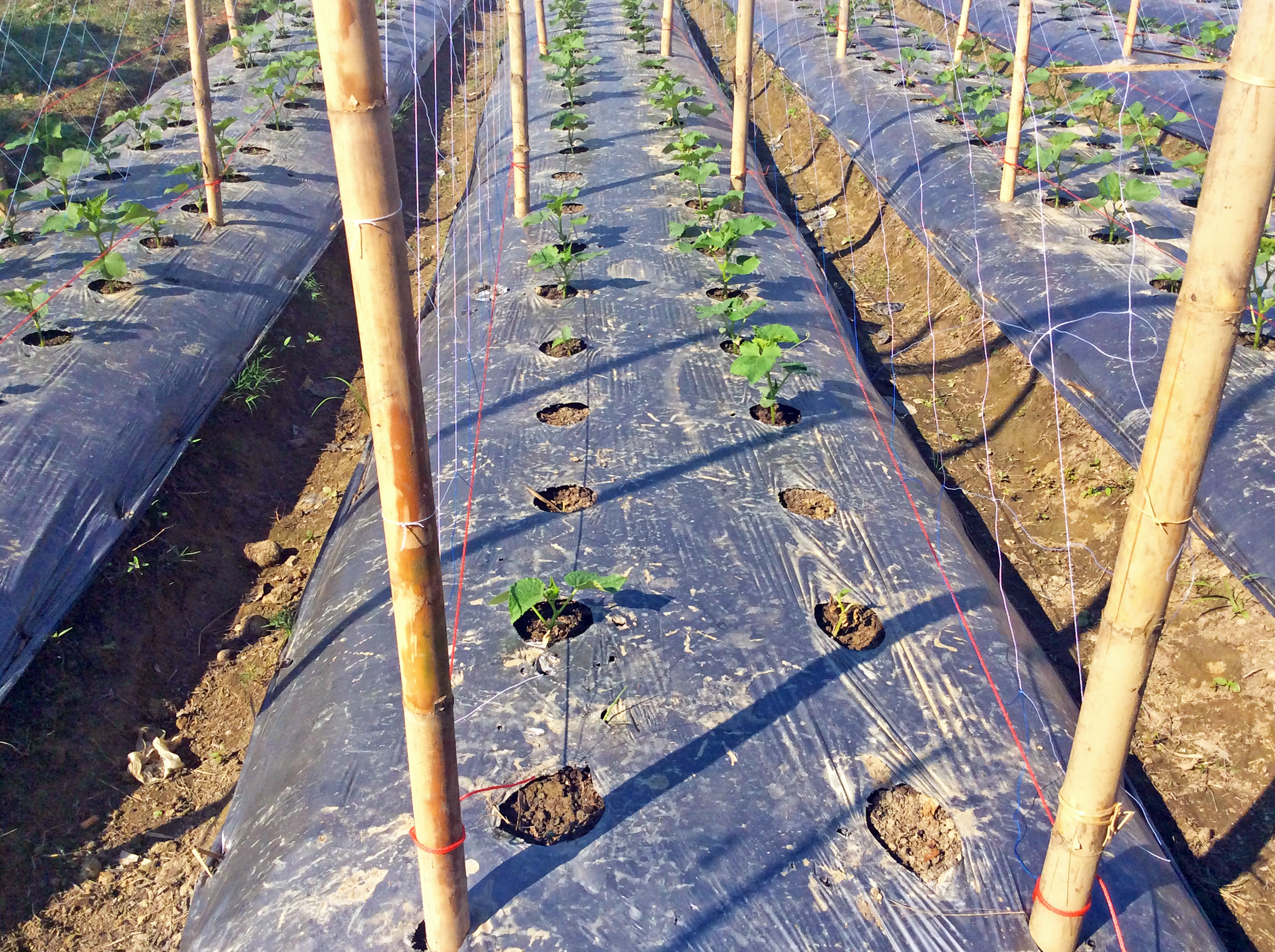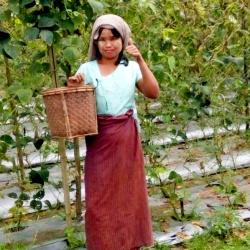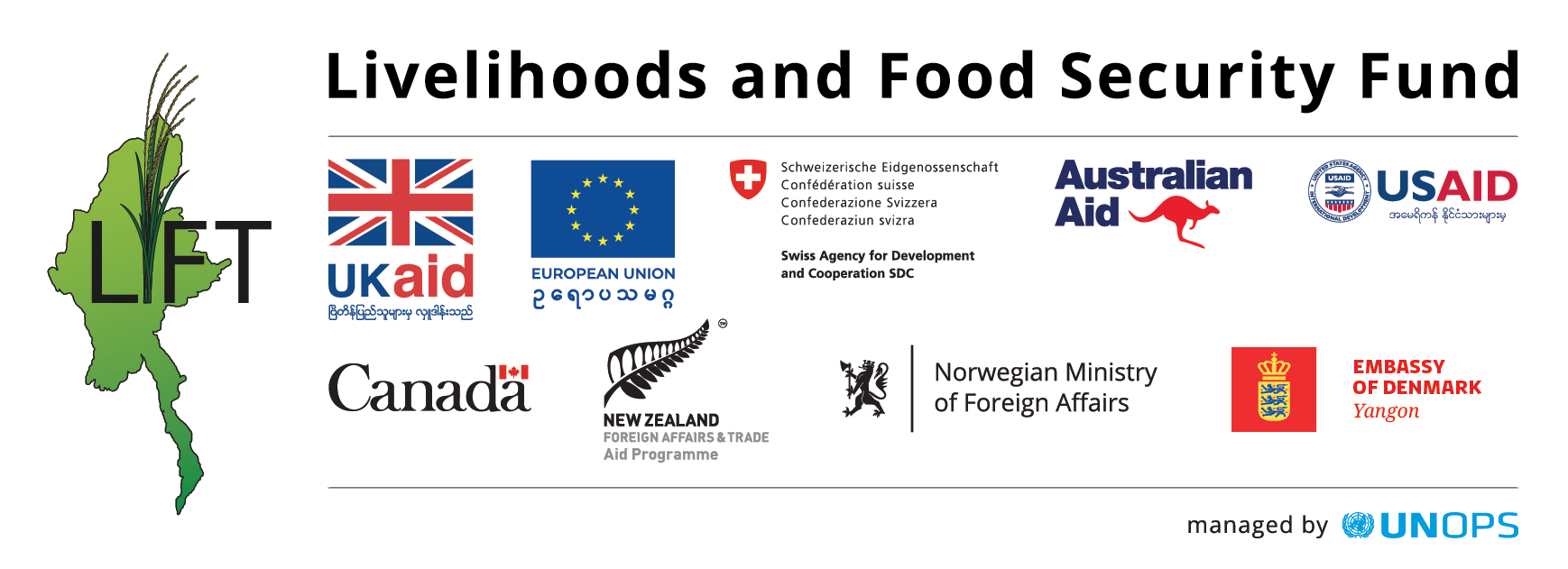
Daw Khin Khin Hla from Taw Kan Village, Rakhine State, used to spend her days in the farm next to her husband, helping him plant seeds and apply fertilisers. She never received any proper training, but she was able to grow and sell what she grew using the skills that her husband taught her. They never went beyond traditional practices, mostly only relying on local seeds and simple, conventional tools. They also made small investments, but just the ones that they could afford. For Daw Khin Khin Hla, she farmed the way she had been taught how. Little did she know that she could achieve so much more.
In 2015, Daw Khin Khin Hla accompanied her husband to a meeting held by Mercy Corps, Swisscontact, and East-West Seed for Making Vegetable Markets Work (MVMW) programme. It is a market-driven project funded by LIFT to improve livelihoods and increase vegetable production. It provides assistance and nurtures farmers’ abilities, helping people like Daw Khin Khin La to reach their full potentials and eventually improve their livelihood and nutrition status. They work together with farmers, training them on good agriculture practices and encouraging them to adopt new farming technologies to help increase productivity. Once Daw Khin Khin Hla heard about this programme, she became interested. It was an opportunity to learn something new. So she decided to enroll in their trainings with her husband.

The project taught them about new methods and techniques that would be useful on their farm. From building beds for plants, using seedling trays and plastic mulches, to choosing trellises for climbing plants. She quickly learned about new technologies, too. On top of that, she was trained to think more efficiently. “After receiving the training, I understood how to apply fertiliser and pesticides systematically,” she said. “It is more cost-effective than how we did it in the past,” she added. During field days, the farmers were also able to practise what they had learned at demonstration farms.
Following the trainings, Daw Khin Khin La found out that vegetables can actually be cultivated for the whole year in Rakhine State, which was something that she never thought possible due to the heavy rainfall and flood. “Before the project, vegetables are not available in the villages especially during the rainy season,” she explained. Thanks to the guidance that she received in the programme, she was able to cultivate long beans during the upcoming rainy season. Later she also succeeded with more vegetables. Now people in her village can enjoy vegetables every single day, and the crops are not only good for home-consumption, but also for sale.

Daw Khin Khin La has come a long way since the days that she spent in the farm helping her husband. Her confidence grew the moment she gained more farming techniques and her skills continuously evolve as a vegetable grower. “Now I can independently cultivate vegetables, not only help my husband,” she said proudly.


